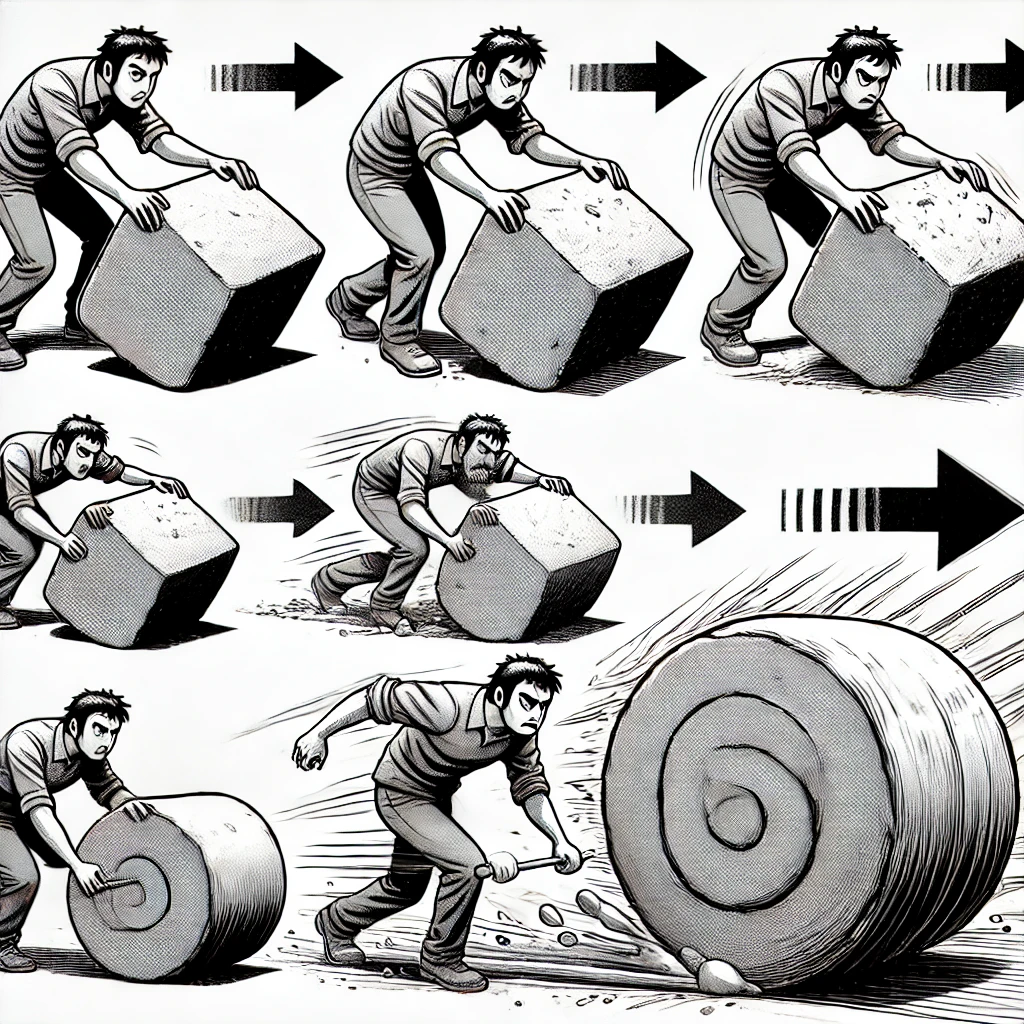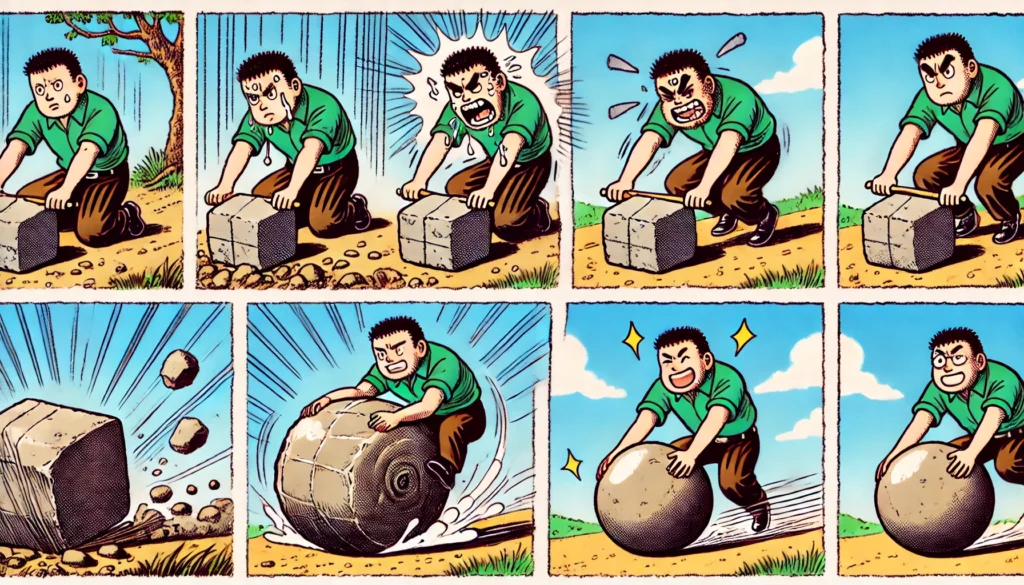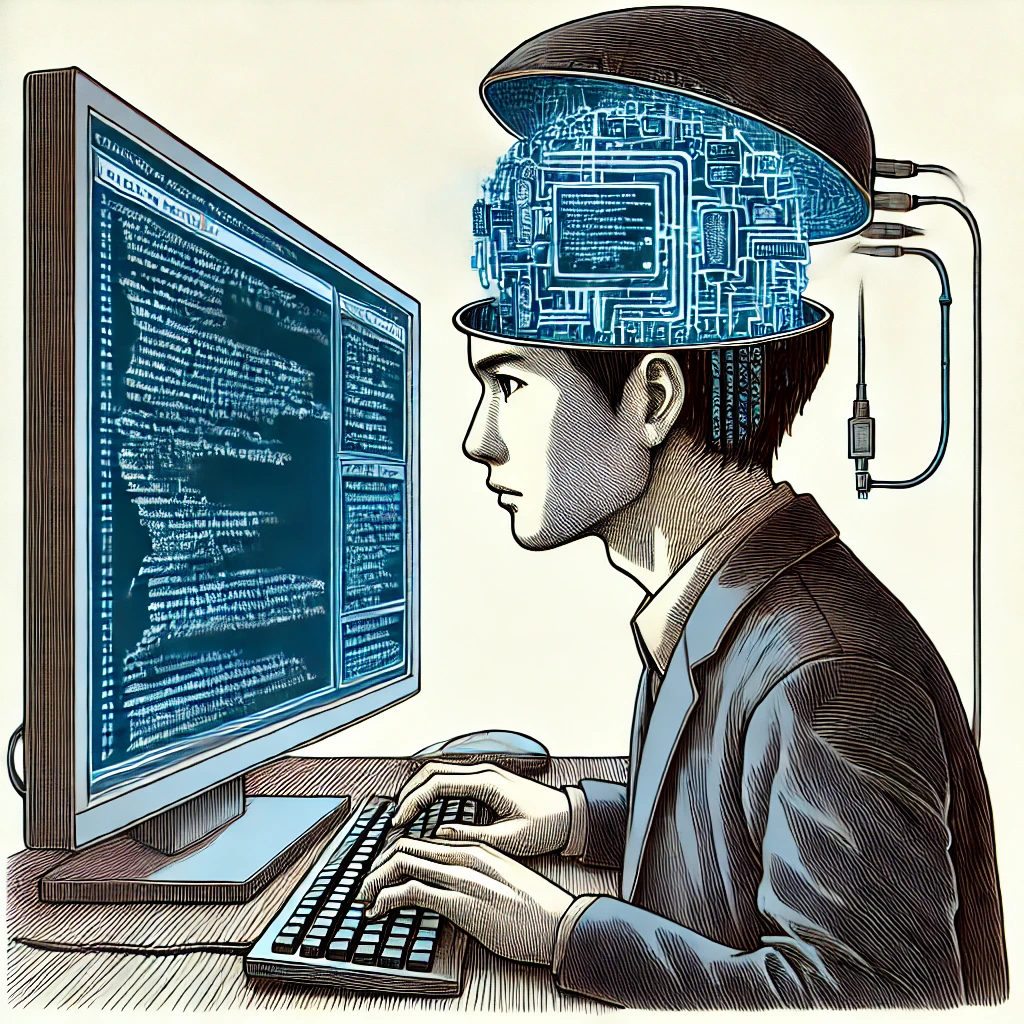
The whole idea: compress the concept by repeatedly practicing explaining it until you understand it from first principles
1) Try to explain the concept as best as you can (ideally out loud, as this is much more effective). Pretend you’re having an imaginary conversation where you are explaining the concept to someone else.
2) While explaining the concept, focus on making it easier for them to understand.
3) Repeat this over and over, iteratively refining your explanation of the concept to give increasingly compressed and effective explanations. (Ideally continue until you can explain it from first principles only)

Over several repetitions, you will end up with a significantly simpler understanding of the concept than when you started, allowing you to mentally work with it much more efficiently. Use this to get an extremely effective understanding of any concept.

Many of you may already do this (i dont know actually, but I could see this being common without me realizing it). But I suspect many others of you have no idea this is even a thing, and for you, this will be a super powerful tool in your learning arsenal.
Practice this right now
Practice this technique right now. Literally take some time to practice it at this very moment. Pick a complex concept you that you want to refine. Pretend you’re talking to someone and try to teach it to them in your own words, out loud. Use analogies, explain it from first principles, etc, whatever helps you teach it better in a more compressed form. Then repeat this over and over, compressing the concept more and more down to what matters after each rep.

For a new concept, the first time you do this will be the hardest. but it gets easier after very few repetitions. you’ll quickly see it becoming easier after the first few iterations.
You will hit road bumps when teaching/explaining. These will require you to figure out questions about the concept you’re learning. Part of the process is answering these questions, however long it takes to figure out how to answer it with specificity from first principles
Talking out loud
Talking out loud, rather than explaining to an imaginary friend in your head, seems to make this technique much stronger.
In addition to storing your thoughts in your ‘thinking’ memory you will also store them in your audio memory.

This is my understanding of the effect, anyways. Personally when I am trying to remember a long number or something, I will say it out loud, and then recall it by remembering how it sounded.
My personal experience with this
I have been doing this since I was ~8. It’s one of the most useful learning techniques I have stumbled on. Because I find explaining/teaching fun, Ive always done this on autopilot for most concepts Ive had to learn in classes. For most of my life, imagining explaining things has taken up a large portion of the time Ive spent thinking (usually ~30% if I had to guess)

Id learn a concept in a class, and then constantly daydream about teaching it to people. If I was by myself I’d do it by talking out loud instead of in my head.
I was unintentionally doing the strongest form of studying for fun during most of my free time (even in spare moments like walking between classes) so I usually barely had to do additional studying for classes.
For example, I found engineering the most fun to think about/teach/compress, so I did this technique with it the most often, making engineering classes the ones I had to study for the least. In other classes I didnt enjoy doing this with, I did much worse and had to study much much harder, even though they were typically considered ‘easier’ classes.

For those of you who need to study all the time, you have probably noticed there are some people who seem to never need to study and somehow always do well. I suspect that they also passively do this technique on autopilot (but really, I have no idea, outside of myself. it just now occurred to me I should ask some other people. maybe they have different but equally useful techniques).
Make a rewarding game out of iteratively compressing concepts via teaching, so that it’s fun/interesting and you do it all the time. Make a challenge out of compressing it as much as you can, and then get the reward of helping people learn after youve compressed it (it makes their lives significantly easier and makes them super happy). If you do, there’s a possibility that you’ll have to ‘sit down’ to study a lot less, and that your efforts to learn will be more effective.

From my observations of the limited sample of people around me, a lot of the differences in peoples’ ability to learn seems to come from the algorithms they use. I’ve seen people who didn’t think they were smart become significantly more effective by changing how they were doing things.

One of my goals with the resources on this site is to help you operate more effectively by improving your algorithms, so you can help other people do the same (and so on and so forth, viral/paying it forward type beat).

Recent example
The other week, I read an article called The First Law of Complexodynamics. In the article there was the concept of the ‘sophistication’ of a string. This was very foreign to me, and hard for me to understand, but I gained a decent understanding of it by using this article’s technique for about 20 iterations. Eventually I went from barely being able to understand it to being able to teach it to my dad, who is not a computer scientist and has no idea who Kolmogorov is or what strings are.
If you like content like this, follow me on x @dnbt777
also feel free to DM me with any questions

great article!
implementing right now
Nice article! Been following you on twitter for a while now.
Great article.. please keep sharing 🙂
excellent article thanks
This is akin to the Feynman Technique: https://www.youtube.com/watch?v=_f-qkGJBPts
Teaching a topic you want to learn forces you to verbalize (even if you dont actually say it) your understanding of the subject, which may surface holes in your understanding you would not have otherwise realised, forcing you to fill in the holes of your understanding before you can continue teaching.
Many times if you watch a youtube video on a topic, and at the end even if you feel like you understood everything, if you were asked to explain the topic you would most likely struggle at some (complicated) parts. Teaching straight up just tells you what parts you struggle at
” a lot of the differences in peoples’ ability to learn seems to come from the algorithms they use. I’ve seen people who didn’t think they were smart become significantly more effective by changing how they were doing things.”
Please bro can you come up with the article about how people use their algorithms.